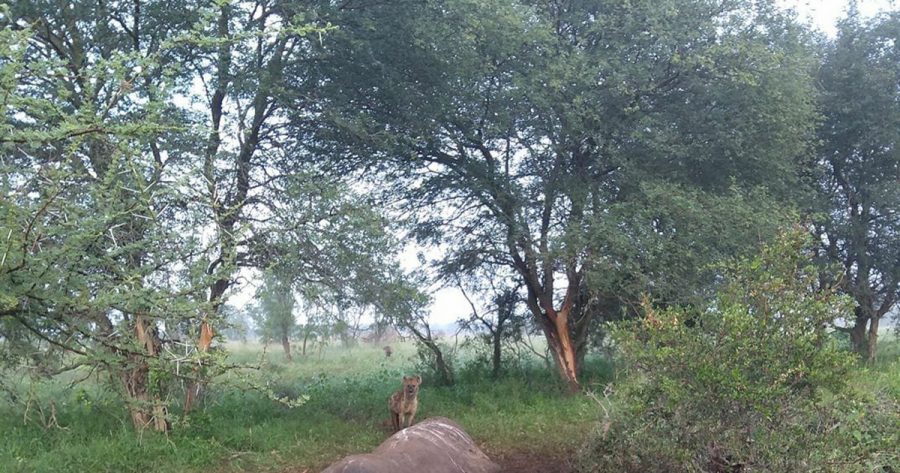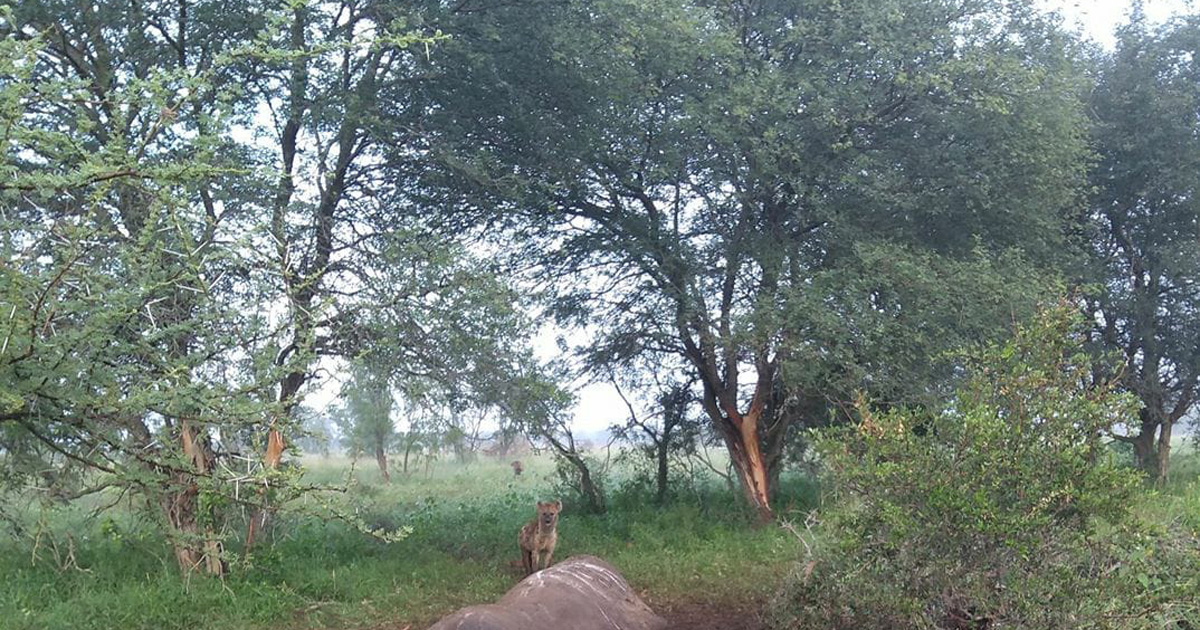
Foreign Photographer’s Tragic Discovery During South African Safari
Rupak Hattikudur moved to South Africa from India three years ago. In that time he has taken beautiful photographs of South Africa’s wildlife in the bush… BUT yesterday he witnessed the other side of what’s happening in the bush to our wildlife. The tragedy of poaching. This is his story… My mother and I woke […]

Rupak Hattikudur moved to South Africa from India three years ago. In that time he has taken beautiful photographs of South Africa’s wildlife in the bush… BUT yesterday he witnessed the other side of what’s happening in the bush to our wildlife. The tragedy of poaching. This is his story…

My mother and I woke up at 4:30 am today to be a part of the morning bush walk from a rest camp whose name I will not disclose for reasons to be explained in this post.
A couple accompanied my mother and I for the walk and the six of us, including the two guides, set out for the early morning activity.
After driving on the tar road for a while, we drove into the bush and after traversing the tough terrain, we got off the bakkie.
We were briefed about the rules of the walk and then we set out. No more than one hundred metres away on a tree, we saw around ten vultures waiting for their next meal.
Hyenas started whooping, lions started roaring; it was surreal. This was the Africa as we had read in textbooks way back in school. To witness this first hand, you can hardly put it in words. And clearly, I fail to do so.
Animals’ and birds’ behaviour quickly changes when humans are on foot compared to when we’re driving around them. They’re far more responsive and readily detect our presence.
The vultures fled the scene. The closer we got to them, the farther away they receded.
As we kept walking, one of the guides stopped and started talking to us. The whooping of hyenas only intensified at this point. It was getting exciting and unreal, now.
We could smell some meat rotting. The vultures around were our first clue, but this rotting smell was the final clue. There was a carcass around.
The guide then broke the sad news to us. It was a rhino carcass, he suspected. From the stench of the carcass, he was able to recognise the animal.
What was worse was that he suspected the rhino to be poached and have not passed away due to a natural cause.
I did not want to believe this.
We moved slowly and steadily towards the carcass. The stench become stronger, and the hyenas, more timid in their approach.
My worst fears came true.
It was the carcass of a white rhinoceros.
The horn was missing.
The rhino had been poached.
There was a stunned silence in the bush.
It was like a mourning of sorts for a few moments. The guides, the people who had come for the walk, even the hyenas and the vultures joined us in the deafening silence to what we had just witnessed.
The guides managed to speak after a while as to how poaching is rampant and extremely visible. He called up the nearest rest camp to report what he’d seen and suggested that they increase patrolling in the area.
What followed was a long discussion about poaching in the park and other reserves in the country. I explained how it was rampant in my country, India, as well. He mentioned that it was regrettable that this was happening – our very own people were fighting with each other (poachers and the anti-poaching team) to make some quick money by selling this to Asian countries.
We left the scene with a heavy heart while the hyenas and vultures feasted on the carcass.
After some biltong, and cheese and crackers, we walked back to the bakkie, and then drove back to the camp.
Poaching is real and is happening.
It is our responsibility to educate and share incidents like this on a daily basis to reduce and effectively stop this from happening.
On a much larger scale, it is important to educate everyone that a rhino horn will not bring anyone ‘good luck’ or any such hocus pocus.
It was a sad day for me indeed, and for every single one of us who strive to make this world a better place, day after day.

© Rupak Hattikudur. Published here with Rupak’s kind permission.
View Rupak’s Wildlife Photography on facebook here.
